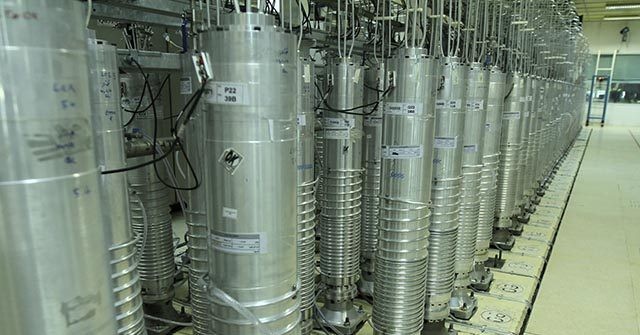So on a related topic, Where does Israel get off "Not allowing" Iran to possess nukes? I'm not in favor of them having nukes, but who are we to say who can have them and who can't?
"
Israeli official on Iran nuke site blast: ‘We don’t ask a man what he did at night’
Deputy Defense Minister Alon Schuster says Israel will use military means in extreme situations, a day after an explosion near Natanz that Tehran said was an air defense test
By
TOI STAFF5 December 2021, 11:19 am

Alon Schuster, March 19, 2021. (Michael Giladi/Flash90)
Deputy Defense Minister Alon Schuster on Sunday refrained from directly answering questions about a blast in the vicinity of an Iranian nuclear site a day earlier, only saying he “can’t say” what hit Natanz.
When asked what Israel had to say about the explosion on Saturday near the Natanz site, Schuster said: “We don’t ask a man what he did at night, but we are currently trying to bring about a change in the motivations of the whole world through diplomatic means.”
“Iran is a problem for the whole world, and not just the State of Israel alone,” the Blue and White lawmaker told Radio 103FM when asked about potential Israeli involvement in the explosion.
“We have a duty to be brave and responsible for the fate of our children and grandchildren,” he said. “We have used force against our enemies in the past and we are convinced that in extreme situations, there is a need to act using military means.”
“We hope the whole world will be mobilized for the mission. For that, we’ve allocated a significant sum to increase our readiness. What hit Natanz? I can’t say,” Schuster added.
Israel has
reportedly approved a budget of some NIS 5 billion ($1.5 billion) to be used to prepare the military for a potential strike against Iran’s nuclear program. It includes funds for various types of aircraft, intelligence-gathering drones and unique armaments needed for such an attack, which would have to target heavily fortified underground sites.
The Natanz uranium enrichment facility buildings are pictured some 200 miles (322 km) south of the capital Tehran, Iran, on March 30, 2005. (AP Photo/Vahid Salemi)
The
explosion on Saturday was heard in the skies over the Iranian city of Badroud, 20 kilometers (12 miles) from the Natanz nuclear plant.
Several media outlets including Nour News, a website linked to Iran’s Revolutionary Guards, said the explosion was not an attack, but rather was caused by a missile as part of a test of air defenses’ response to a potential attack.
Some of the reports said a drone was shot down.
The blast came amid heightened tensions between Iran and world powers, as Tehran continues to race forward with its nuclear enrichment. It came a day after nuclear negotiations were halted in Vienna, with Western countries saying Iran had come to the talks with unrealistic proposals.
Iran’s uranium enrichment facilities in Natanz have seen several reported attacks in recent years that have been attributed to Israel.
A building damaged by a fire, at the Natanz uranium enrichment facility some 200 miles (322 kilometers) south of the capital Tehran, Iran, in a photo released on July 2, 2020. (Atomic Energy Organization of Iran via AP)
In April, the underground nuclear facility there experienced a mysterious explosion that damaged some of its centrifuges. Last July, unexplained fires struck the advanced centrifuge assembly plant at Natanz, which authorities later described as sabotage.
The landmark 2015 nuclear accord — initially agreed between Britain, China, France, Germany Iran, Russia and the US — began unraveling in 2018 when then-US president Donald Trump pulled out and reimposed sanctions, while Iran began to publicly breach the deal.
Israel has vowed that it will not allow Iran to possess nuclear weapons.
AFP contributed to this report.

 Sure. Well, it has become a fun discussion in any event. Grnjp, the Israelis are purported to be our best source of intel on just about damn near anything anywhere anytime. We also send shit loads of money to shitloads of places and people that dont deserve it. The Israelis are the only truly free democracy in that sphere. We support freedom and democracy, hence some rationale to support Israel. The geopolitical location, the Suez canal, oil all that shit puts the cross hairs on Tel Aviv. I do not truly know how much "aid" we give them. They make and sell good ammunition and have fetching women.
Sure. Well, it has become a fun discussion in any event. Grnjp, the Israelis are purported to be our best source of intel on just about damn near anything anywhere anytime. We also send shit loads of money to shitloads of places and people that dont deserve it. The Israelis are the only truly free democracy in that sphere. We support freedom and democracy, hence some rationale to support Israel. The geopolitical location, the Suez canal, oil all that shit puts the cross hairs on Tel Aviv. I do not truly know how much "aid" we give them. They make and sell good ammunition and have fetching women.